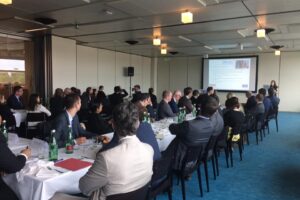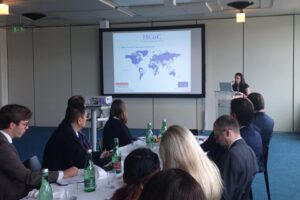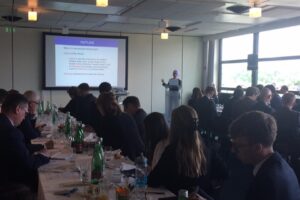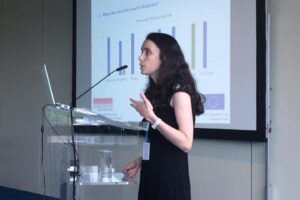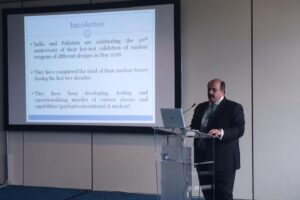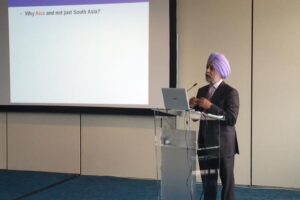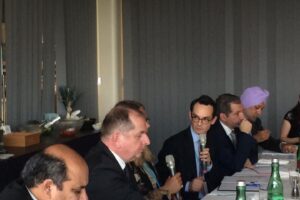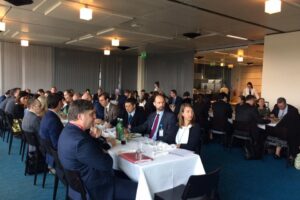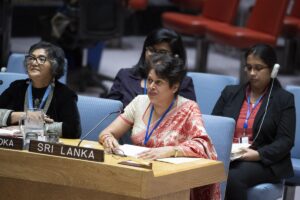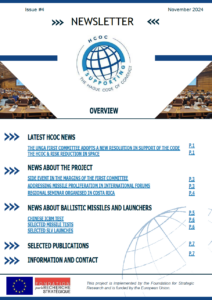Side event in the margins of the HCoC Annual Regular Meeting in Vienna
28 May 2018
On 28 May 2018, the FRS organised a lunchtime side event in the margins of the HCoC Annnual Regular Meeting (ARM) in Vienna. This workshop, which gathered both subscribing and non-subscribing states to the HCoC, was particularly focused on dealing with the missile threat in South Asia.
AGENDA
WELCOMING REMARKS
- Alexandre HOUDAYER, Secretary General, FRS
- Georgios KRITIKOS, Deputy Head of Division, Disarmament, Non-proliferation and Arms Export Control, EEAS
I/ THE ROLE OF THE HCoC DEALING WITH THE CURRENT BALLISTIC MISSILE LANDSCAPE
PRESENTERS:
- Amb. Marek SZCZYGIEL, Ambassador at large, Department for UN and Human Rights, MFA of Poland, Outgoing HCoC Chair
- Amb. Eva WALDER, Ambassador for Disarmament, MFA of Sweden, Incoming HCoC Chair
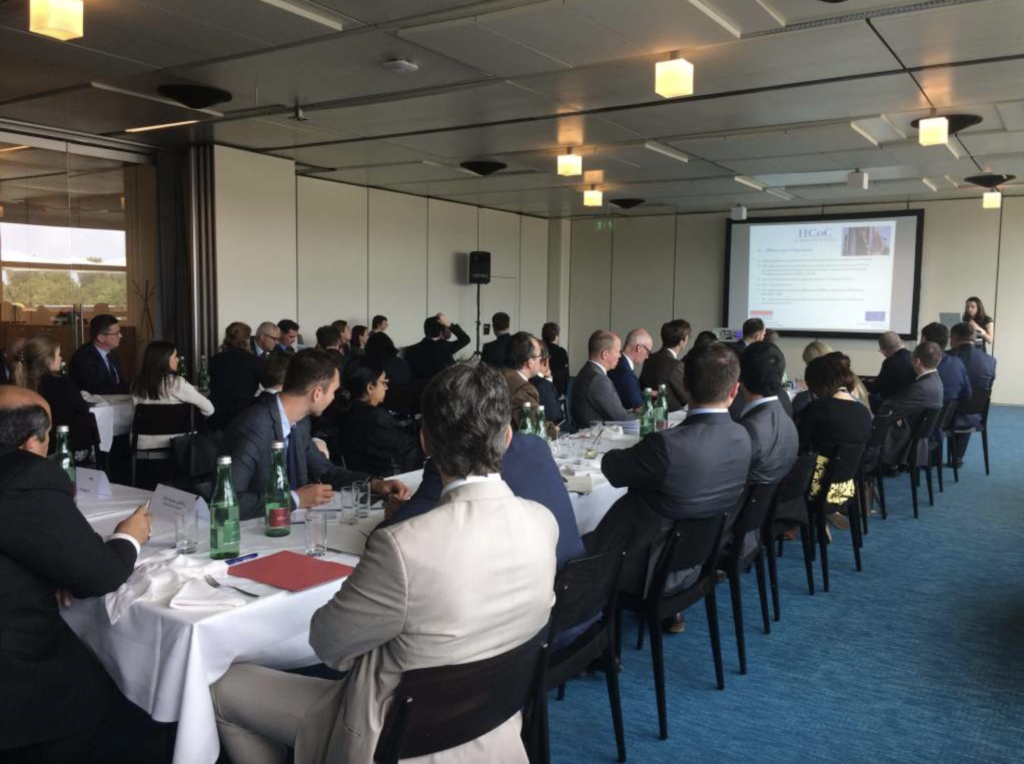
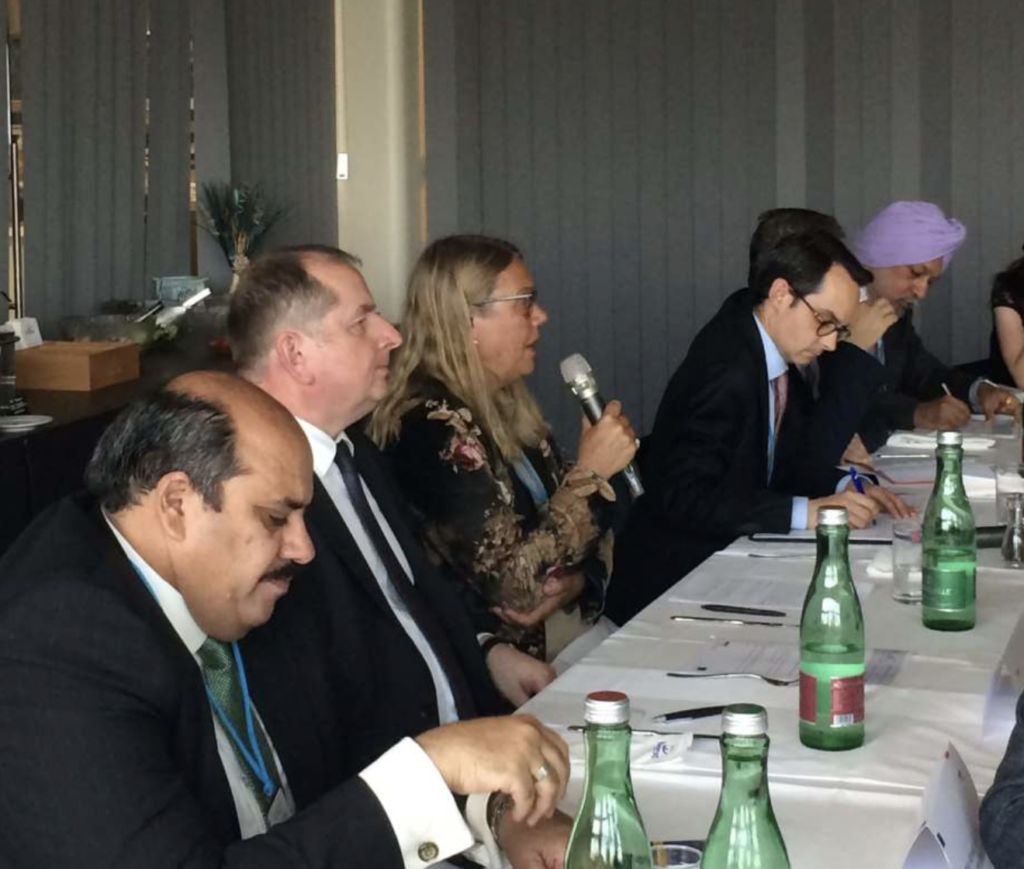
II/ THE ROLE OF CONFIDENCE-BUILDING MEASURES IN DEALING WITH MISSILE THREAT: THE CASE OF SOUTH ASIA
PRESENTERS:
- Dr. Zafar Nawaz JASPAL, Associate Professor, School of Politics and International Relations, Quaid-I-Azam University
- Dr. Waheguru Pal Singh SIDHU, Associate Professor, Center for Global Affairs, New York University
- Emmanuelle MAITRE, Research Fellow, FRS
KEY ISSUES:
- The role of bilateral and multilateral CBMs in dealing with the missile threat in the region
- Contribution of the Code to the promotion the peaceful use of launching technologies in the field of space
- Further steps to prevent the proliferation of ballistic systems in South Asia and deal with the threat
DISCUSSIONS
